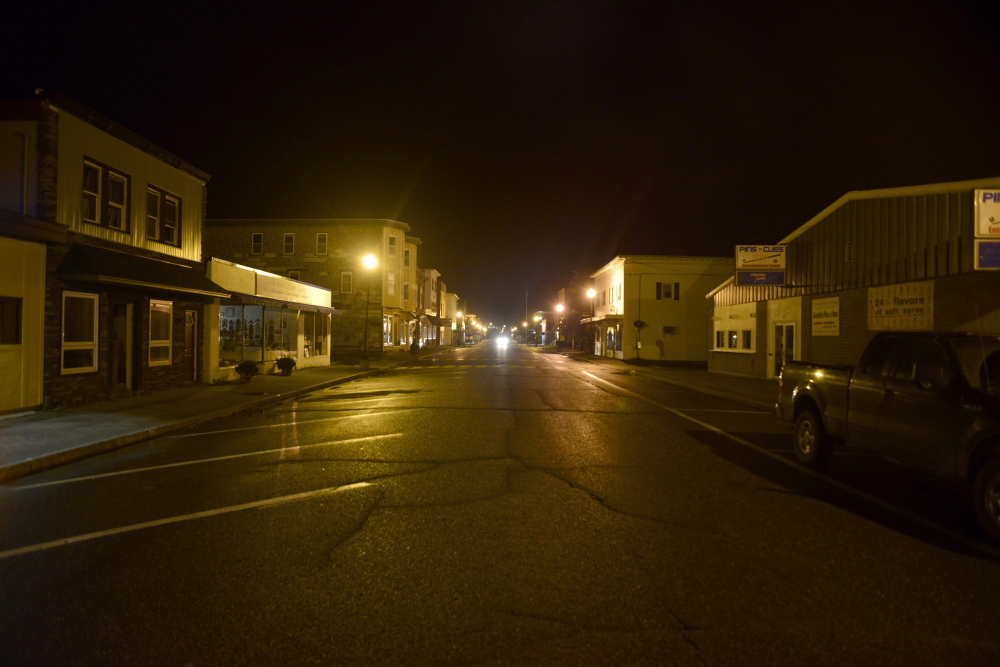Infrastructure that’s crumbling, natural assets that are taken for granted and a negative attitude toward outsiders.
That’s a description of the town of Millinocket, but it could have just as easily been applied to the whole state of Maine.
Moved by a story last summer in The New York Times about how the loss of the Great Northern Paper Mill would affect the town, an Alexandria, Virginia-based economic development consultant volunteered to help Millinocket develop an economic strategy.
What he reported in a nine-page open letter to the community may have come across as a little harsh, but it’s something the town needed to hear. It’s also something we need to hear in Portland, Bangor, Lewiston, Biddeford and, especially, Augusta. Boiled down, the message is this: If we are not willing to take risks to grow and change, we will suffer.
THE BOTTOM LINE
In his letter to the town, Charles Buki of czb LLC writes:
“The bottom line is that Millinocket has long resisted truly adapting to a changing world, and that resistance has served you poorly. … In short, the world has changed (over) the last 50 years to a far greater degree than Maine has, and to an especially greater degree than the Katahdin Region has. It’s uncomfortable for us to say, and no doubt even less comfortable for the community to hear, but the world has left Millinocket behind and no one will pay the catch up costs except you, so if you don’t, it’s game over.”
Buki’s advice for the town is to stop waiting for an out-of-state major employer to come to the rescue and take the place of Great Northern Paper. Instead, the town should invest in its infrastructure, help residents get the kind of education required for high-paying jobs and make the most of its location as a gateway to what could be a major tourist destination.
If that advice sounds familiar, it’s much the same message that the Brookings Institution delivered to the entire state in 2006 when it released its report “Charting Maine’s Future.” Brookings noted that manufacturing and resource-based industries are collapsing, at least as a source of jobs. Taking their place as major employers is a diverse mix of small businesses, including ones devoted to tourism and recreation, which bring in money from outside the state that circulates in the Maine economy.
Maine can help that process along, Brookings advised, by investing in the things that make the state attractive to outsiders – what they call its “brand” – such as pristine natural settings and historic downtowns.
The challenges to a successful transition are real. Millinocket’s location is a problem. Boston is a five-hour drive away, and no act of government will ever make it any closer. But, Buki writes, the town can make sure that anyone who makes the drive is rewarded with attractive buildings, tourist amenities and easy access to the woods, mountains and rivers.
“But right now, that’s simply not true,” he wrote. The town is littered with old industrial sites; vacant or poorly maintained houses and commercial properties, and recreation options that are available only to locals with knowledge of privately owned land. Until that changes, fewer people will make the trip and outside investment will stay away.
NOT COMING BACK
The state as a whole should heed the same advice. The kind of industry that the paper companies represent is never coming back. We’ll never have cheaper labor than Asia or be able to compete with Florida for winter weather or when it’s time to pass out tax breaks. We need to find innovative ways to create value from our natural assets.
If we don’t invest in our roads, broadband networks and the education of our workforce, and if we don’t protect our wild places and direct the right kind of growth to our cities and towns, we will not be able to attract investment from away. And if we don’t encourage outsiders to bring their talents and energy here to live and work, we will just get older and poorer.
Maine is going to change, no matter what we do. But by making the right choices today, we have a chance to grow and become more prosperous.
It’s not just Millinocket that needs to hear this message, but all of us – and the time to hear it is now.
Copy the Story LinkSend questions/comments to the editors.



Success. Please wait for the page to reload. If the page does not reload within 5 seconds, please refresh the page.
Enter your email and password to access comments.
Hi, to comment on stories you must . This profile is in addition to your subscription and website login.
Already have a commenting profile? .
Invalid username/password.
Please check your email to confirm and complete your registration.
Only subscribers are eligible to post comments. Please subscribe or login first for digital access. Here’s why.
Use the form below to reset your password. When you've submitted your account email, we will send an email with a reset code.